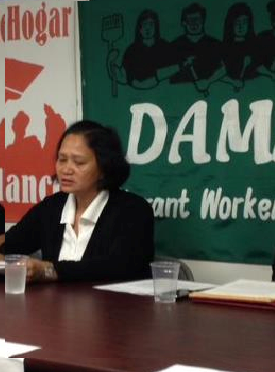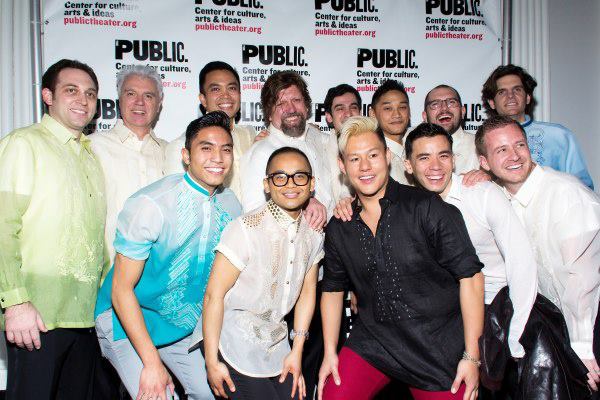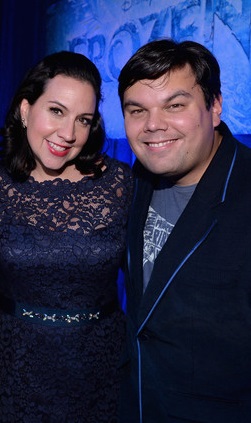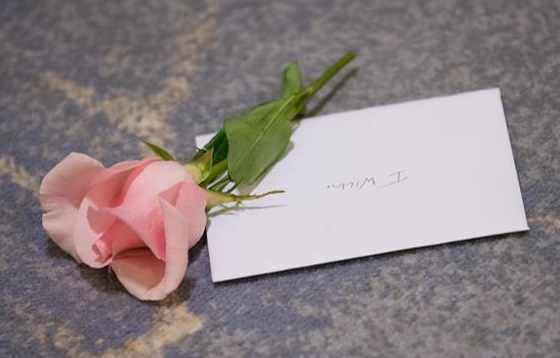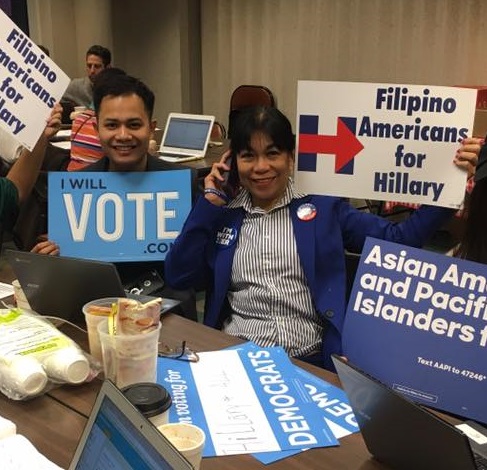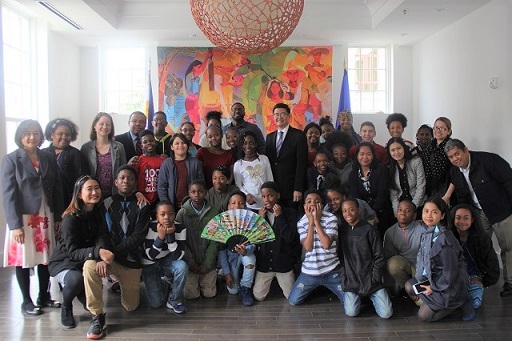On Global Filipinos: Nicole Ponseca: ‘I Am a Filipino’
By Loida Nicolas Lewis
When Nicole Ponseca was growing up in San Diego, California, her father was very adamant in telling her, “You are a Filipino”. Her father, a Cavite native, wanted her to never forget that Cavite was one of the first provinces to revolt against the Spaniards’ 350 years of colonial subjugation. In fact, the Philippines’ Declaration of Independence from Spain was inaugurated by General Emilio Aguinaldo in Kawit, Cavite, his birthplace.
Nicole’s DNA never forgot her heritage.
At 20 years old, she decided to pursue her dream of living in New York City, and arriving with just $75 in her pocket. Within 14 days, she was hired by Saatchi and Saatchi Advertising Agency. But through her years in advertising, she realized that her identity as a Filipino is unknown or often, misunderstood.
In her desire of putting the Filipino culture and cuisine in the map, she aimed to become a restaurateur. Working as an advertising executive by day, she decided to learn about the restaurant business the best way she could: by working off hours in several restaurants as a dishwasher, server and hostess. In time, she started her own pop-up Filipino restaurant, Maharlika in the East Village—an endeavor that caught the attention of many foodies, both Filipino and non-Filipino alike. Every weekend since her brunch pop-up launched, Maharlika was fully booked and was getting reservations up to three months in advance.
The success of the pop-up made her decide, along with her business partner and head chef, Dominican American Chef Miguel Trinidad to establish in 2011, Maharlika Bistro and one year later, Jeepney Gastropub in the East Village.
I remember dining in Maharlika, eating a Filipino favorite, Spam, cut into long pieces, breaded and fried to perfection, as an appetizer. It was served like French fries with sweet chili sauce. The cuisine was delicious Filipino food, fused with American staples (think ube waffles and soy-marinated fried chicken, a twist to your regular chicken and waffles) served with sophistication, making Maharlika one of the first modern Filipino restaurants in the area. When anyone ordered balut ( boiled egg with embryonic duck), all the waiters would shout “baluuuuut”. On the wall blackboard was a Filipino word of the week to educate the patrons on a common Filipino culture or custom.
Jeepney, on the other hand, was more rock ‘n’ roll and rugged. It was the first restaurant that popularized elaborate dinners served on banana leaves “kamayan-style” encouraging patrons to enjoy their meal by their fingertips sans spoon and fork.
While running her restaurants, she visited the Philippines for several months to research every region’s food culture. The result was her masterpiece- an iconic bestselling Filipino cookbook , “I Am a Filipino” which used the same font as the placards of the Civil Rights demonstrations in the 1960s “I Am a Man.”
After nine years of serving modern Filipino food fare, Maharlika had to close its doors to streamline operations in 2019.
In 2020, the year of the COVID-19 pandemic, the restaurant industry, especially in New York City, was hit pretty hard. The ones that survived did so by doing food take-out and delivery, but many chose to close their doors permanently. Unfortunately, Nicole had to make the difficult decision of closing down Jeepney as well at this time.
In the meantime, Nicole could not be denied her passion to celebrate Filipino cuisine. Nicole moved to Miami, Florida and her restaurant Jeepney was listed recently at one of Miami’s 13 Essential Food Hall Dishes in 2021.
“At her progressive Filipino spot inside 1-800-Lucky, James Beard-nominated author and restaurateur Nicole Ponseca serves breakfast Sando, a meal of two eggs, Filipino-style pork belly tocino, and fried cheese on a sesame bun. The luscious sandwich is topped with Bicol sauce, a concoction of coconut, chilies, ginger, and fermented shrimp.”
In the meantime, the Filipino Food Movement scored a big win after the pandemic. The Philippine Consul Generals in the United States decided that it was time to extend the Filipino Food Week into one month and chose April as the Filipino Food Month.
This year on April 27th, Nicole Ponseca was chair of the brunch called “Merienda” held in Chelsea Piers. It was the second year in April that Filipino chefs were involved in celebrating Filipino food at the James Beard Foundation.
Due to budget limitation, she asked chefs Dale Talde, Leah Cohen, Woldy Reyes and Diana Manalang to join her and choose their specialty aside from her own chosen dishes of Salmon Kinilaw with Atchara, Coconut Milk, Pinakurat, Ikura, and Bitter Melon Chimichurri;
Around 50 guests partook of the Merienda to end all Meriendas: Pancit Palabok with Blue Crab Gravy, Smoked Trout Roe, and Chicharrones; Bibingka with Mango Glaze and Black Salt, Pandesal and Keso; Black and White Sesame Bread with Unaged White Cheese, Calamansi Marmalade, and Beef Jerky; Sinangag Frittata with Herb Salad ; Tortang Talong, Japanese Eggplant with Oysters, Olive Watercress, Oaxaca Cheese, and Shacha Barbecue Sauce; Beef Kaldereta and Chicken Adobo Toast and Crispy Potato Strips; Smoked Bangus Toast ; Classic Lumpia with Pork, Shrimp, Carrot, and Cilantro.
Filipino Food Movement co-founder Sonia Delen was not able to attend so she provided complimentary tickets for me and my high school classmate, Leonor Cabigao Bismonte and her executive daughter Lanelle to this incredible iconic experience.
As we applauded the five chefs by the end of the “Merienda”, a valid commentary by Chef Woldy Reyes could explain why Filipino restaurants have not risen to the level of other Southeast Asian restaurants like Vietnam, Thailand and Indonesian cuisine.
“When our people eat in Filipino restaurants that have exemplary, above the norm cuisine, their conclusion of ‘how expensive’ knocks down the tireless effort of the Filipino chefs to elevate Philippine cuisine.
But Nicole and the other Filipino diaspora chefs throughout the world are not deterred.
“You ain’t seen nothing yet,” she says.



